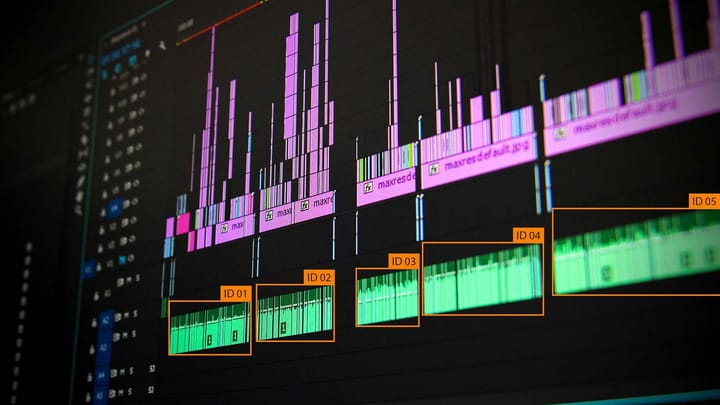TOP hard and soft skills for data annotators

Data annotation is a critical component of machine learning, and it requires a unique set of skills to ensure accuracy and efficiency. As more companies invest in AI technologies, the demand for skilled data annotators is on the rise. However, it's not just about having technical expertise. The best data annotators also possess a range of soft skills that help them navigate complex projects and collaborate effectively with their teams.
In this article, we'll explore the top hard and soft skills for data annotators. We'll discuss the technical skills needed to annotate data accurately and efficiently, as well as the problem-solving skills required to tackle complex annotation tasks. We'll also delve into the importance of soft skills, such as communication, teamwork, and adaptability, and how they contribute to successful data annotation projects.
Whether you're a seasoned data annotator or just starting in the field, this article will provide valuable insights into the skills needed to excel in this critical role. So, let's dive in and explore the top hard and soft skills for data annotators.
The Importance Of Hard Skills In Data Annotation
Data annotation plays a crucial role in creating high-quality metadata for machine learning models. As such, data annotators require specific hard and soft skills to perform their tasks effectively. Among the essential hard skills that data annotators need is SQL proficiency. SQL allows annotators to access and manipulate databases, which is vital in organizing the vast amount of data required for machine learning.
Besides SQL, proficient keyboarding skills are critical for data annotators as they must process vast amounts of information quickly and accurately. Being proficient in keyboarding helps them annotate more images or video per hour and contribute significantly to a project's completion.
Programming languages such as Python, R, or Java are also essential for data annotators when developing tools or scripts that automate repetitive annotation tasks. They can use these programming languages to create algorithms that speed up the annotation process while maintaining consistency.

Apart from technical hard skills, soft skills such as attention to detail and precision are equally important for successful data annotation. Data labelers must pay close attention to details like item boundaries, labels placement while working on numerous images at once without compromising accuracy.
In summary, a combination of specific technical hard skills and non-technical soft skill is key to successful data annotation practices. It's imperative that organizations provide training sessions on these crucial areas with ongoing assessments necessary to help remote workers sharpen their knowledge and kept up-to-date with novel technologies widely adopted by this industry rendition striving scale out automated annotation strives related needs alongside the interpretability efforts around AI solutions globally known today.

Key Hard Skills For Data Annotators
Data annotation is a crucial process for machine learning algorithms to become more accurate. Data annotators are responsible for correctly identifying and labeling data, so that the machine learning models can understand the patterns and relationships in the data. Here are some key hard skills for data annotators:
1. Image and video labeling: Data annotators must be able to accurately identify objects, attributes, and relationships in images and videos. This involves drawing bounding boxes, cuboids, or polygons around objects in images, as well as checking and marking the presence of certain objects or attributes in videos.
2. Text annotation: Another important skill for data annotators is selecting specific text from data and labeling it according to the use case. This may involve categorizing text based on sentiment analysis or identifying entities such as names, places, organizations.
3. Proficiency in SQL: Processing large sets of data requires knowledge of Structured Query Language (SQL). Annotators should be fluent in using this language to manipulate complex datasets.
4. Attention to detail: Precision is key when it comes to annotation accuracy since resulting models would use this information during predictions algorithms rely on high-quality training sets with correct annotations.

Overall these hard skills combined with sufficient domain knowledge make professional annotator's efficient contributors allowing easier development roadmaps thereby better algorithm performance when used commercially or at an academic level alike.
Specialization in Data Annotation Across Industries
During 2023, there has been an escalating trend in the demand for specialized annotators. It became clear that having a general skill set for data annotation wasn't sufficient; industry-specific expertise began to play a pivotal role in ensuring data accuracy and relevance. It’s not only the medical sector that sought such specialization; other sectors like waste management and retail similarly expressed the need for annotators who understand the nuances of their industries. Recognizing and catering to this demand, companies like Keymakr Data Annotation Service, operating in the market since 2015, have stepped up. Keymakr, in particular, boasts in-house teams of specialized annotators tailored for various industries. Their expertise underscores the evolving requirements of the data annotation realm, emphasizing that as industries grow and evolve, so too does the need for annotators who deeply understand the specifics of those sectors.
The Role Of Soft Skills In Data Annotation
Soft skills are becoming increasingly important in data analytics, and this includes data annotation. While technical skills are necessary, soft skills such as personality, work ethics, and people skills are equally essential for a successful career in data annotation. Unlike technical skills that can be tested and measured objectively, soft skills are subjective and difficult to quantify.
Data annotators need to have excellent interpersonal or 'people' skills. Data annotation involves working with others often remotely on complex projects that require clear communication. Annotators must possess the ability to understand different perspectives, negotiate with others and handle conflicts professionally.
Communication is a critical skill for data annotators at all levels of seniority. Effective communication not only involves clarity but also empathy since the project may relate to sensitive topics such as discrimination or health inequalities. When managing large-scale projects with several moving parts of different complexities it is imperative an individual can successfully communicate between teams to ensure quality across all areas of annotation.

Finally, critical thinking is another essential soft skill for data annotators this allows them to approach challenges from multiple perspectives considering both human experience and cold hard statistics ultimately leading them towards making decisions themselves without being led solely by interpretations made via set guidelines.
In conclusion; technical mastery alone cannot guarantee success in a rapidly evolving field like Data Annotation but combining it with strong interpersonal abilities including critical thinking along with people and communication talents will play a crucial role in separating high performers from those falling behind while establishing long-lasting careers as skilled future annotators for tomorrow’s dynamic technological landscape
Essential Soft Skills For Data Annotators
Data annotation is a crucial task in the data analysis process that requires proficiency in both hard and soft skills. In addition to technical skills, successful data annotators exhibit soft skills that allow them to work efficiently and effectively with others in their organization. Here are four of the essential soft skills for data annotators:
Firstly, the ability to prioritize tasks and manage time effectively is critical for meeting project deadlines. The annotation process can be time-consuming, so understanding how long each task will take and prioritizing accordingly can ensure timely project completion.
Secondly, having an aptitude for critical thinking is necessary when analyzing complex data sets. Data annotators need to make informed decisions about which annotations are most relevant to achieve accurate results.
Furthermore, transferable soft skills like communication and collaboration play a large role as data analysts work with cross-functional teams in their organization to harness the power of data. Teamwork and flexibility when working on projects foster cohesion among team members.
Finally, having accuracy - a keen eye for detail - helps reduce or eliminate errors commonly associated with human input. Annotation requires high levels of concentration without room for distractions or errors.
Having these soft skills makes a significant difference when it comes to being an efficient annotation specialist who works well within any team's context.
Problem-Solving Skills For Data Annotators
Data annotators are tasked with making sense of large amounts of data through labeling and categorizing. To excel in this role, it's essential to possess strong problem-solving skills. This means being able to analyze complex problems, identify potential solutions, and select the best course of action.
In addition to these core abilities, data annotators should also have solid numerical skills. This includes an understanding of statistical concepts and the ability to work with numbers accurately and efficiently. Being detail-oriented is also crucial since even small errors can have significant consequences when working with large datasets.
Another critical skill for data annotators is expertise in data visualization. The ability to create compelling visual representations of data can help make patterns and trends more accessible and understandable for stakeholders across departments.

Effective communication skills are also essential for success in this field. Data annotators must be capable of explaining technical concepts succinctly and clearly to non-technical audiences, as well as navigating complex discussions about data strategy within their organization.
Beyond these core competencies, active listening is vital for effective problem-solving as a data annotator. Listening carefully to stakeholder needs and feedback can help drive insights that lead to more accurate labeling decisions.
Finally, creativity plays a crucial role in problem-solving as a data annotator. Tackling new challenges requires thinking outside the box while still maintaining high levels of accuracy and attention to detail.
By possessing these hard and soft skills such as problem-solving , numerical proficiency ,data visualization ,collaboration,critical thinking ,creativity,data literacy etc., Data Annotators will become valuable assets that bring clarity from complexity onto the table !
Conclusion
In conclusion, data annotation is a crucial task in the world of data science and requires a unique set of skills. While hard skills such as technical knowledge and attention to detail are important, soft skills such as communication and problem-solving abilities are also essential for success in this field. By mastering both hard and soft skills, data annotators can ensure accurate and efficient annotation, leading to better quality data and ultimately more successful projects. So whether you are just starting out in data annotation or looking to improve your skills, keep these key skills in mind to excel in this important role.



Comments ()